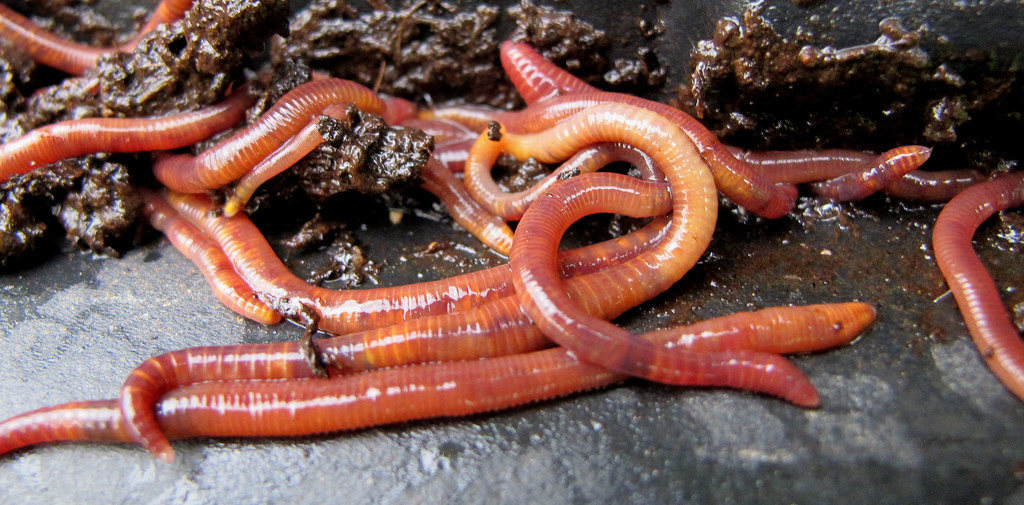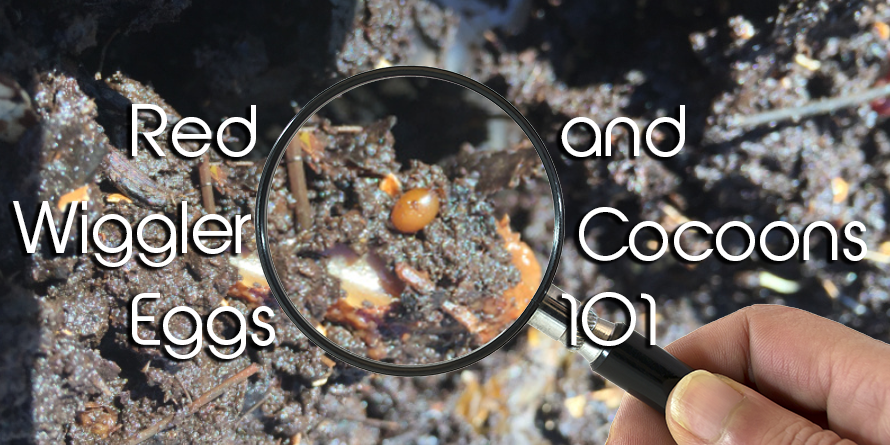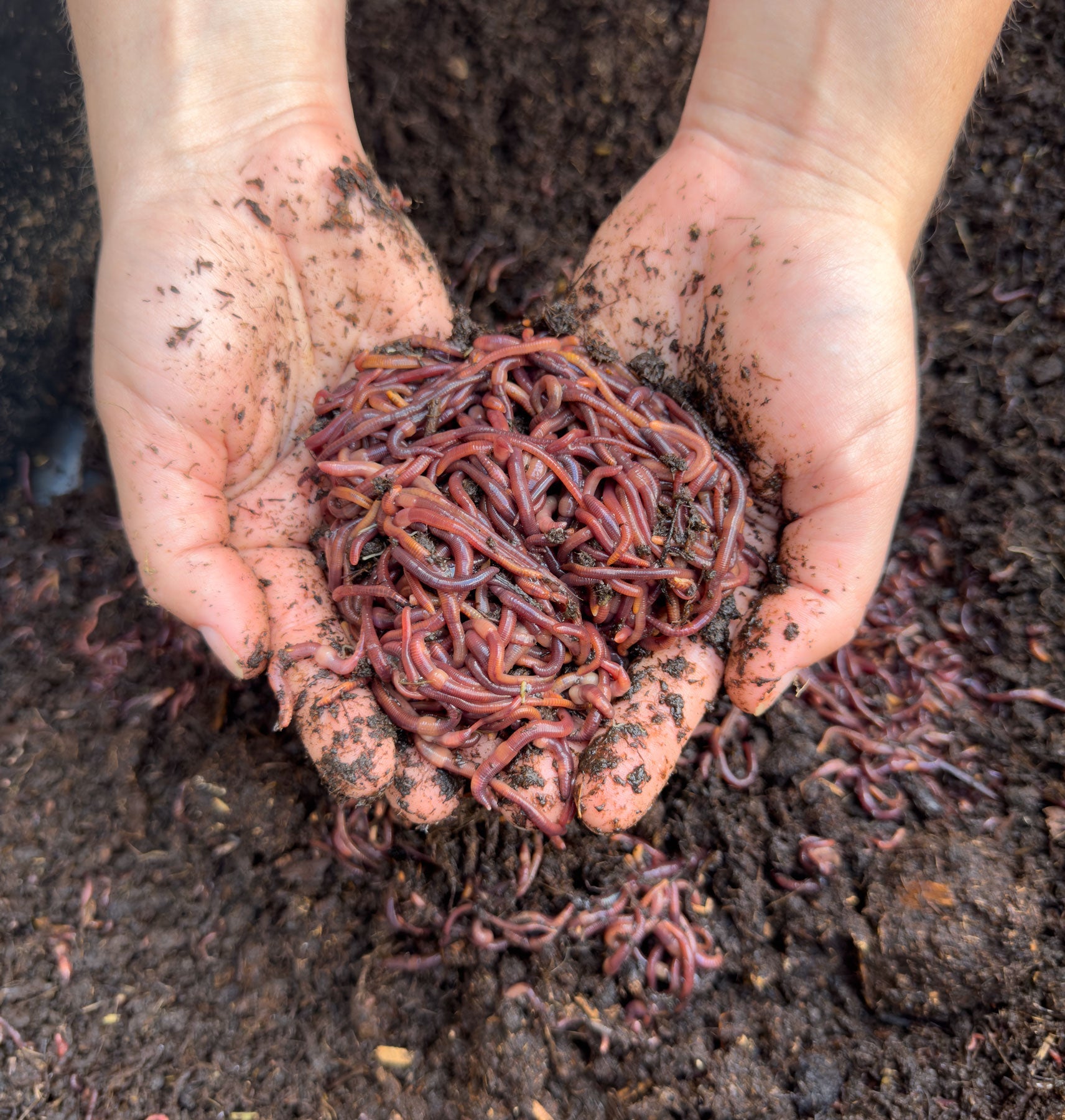Red Wiggler Express: Reliable Bait for a Productive Fishing Day
Red Wiggler Express: Reliable Bait for a Productive Fishing Day
Blog Article
Unlock the Secrets of Red Wigglers: Your Guide to Composting Success
The assimilation of red wigglers right into composting methods presents a significant possibility for improving soil health and advertising sustainability. Comprehending their needs and actions is vital for enhancing their potential, from establishing up a suitable worm bin to feeding them the appropriate materials.

What Are Red Wigglers?
(Red Wiggler Express)Red wigglers, scientifically referred to as Eisenia fetida, are a types of earthworm mainly made use of in composting because of their amazing capacity to disintegrate organic issue efficiently. These worms are identified by their reddish-brown coloration and a fractional body, usually measuring in between 3 to 4 inches in length. Unlike other earthworm varieties, red wigglers prosper in abundant, organic settings, making them optimal for vermicomposting systems.
Belonging To North America, they are often discovered in decomposing leaves and garden compost piles, where they play a vital role in nutrient recycling. Their adjustment to staying in a damp, cardio environment enables them to eat large quantities of natural waste, breaking it down into nutrient-rich spreadings that boost soil health and wellness.
Red wigglers duplicate rapidly, with a single worm capable of producing several cocoons each week, each including several hatchlings. Comprehending the biology and actions of red wigglers is crucial for optimizing their potential in composting applications.
Benefits of Using Red Wigglers
Utilizing the power of red wigglers in composting provides various benefits that enhance soil health and promote lasting waste monitoring. These impressive microorganisms successfully damage down natural issue, changing kitchen area scraps and lawn waste into nutrient-rich vermicompost. This finished product is exceptionally advantageous for plant growth, as it boosts dirt framework, boosts wetness retention, and enhances nutrient schedule.

(Red Wiggler Express)In addition, the existence of red wigglers in your composting system can accelerate the composting procedure, producing high-quality garden compost in a fraction of the moment compared to traditional techniques. The castings generated by these worms are also teeming with helpful bacteria that better enhance the dirt environment.
Establishing Your Worm Container
Developing a reliable worm bin is a simple procedure that can substantially improve your composting initiatives. Worm containers can be made from plastic storage bins, wood boxes, or readily offered worm containers.
Following, prepare the bed linens product, which offers as the worms' environment. A mix of shredded paper, cardboard, and coconut coir functions well, giving a comfortable environment for the worms.

Feeding Your Red Wigglers
To make certain the health and wellness see page and productivity of your red wigglers, it is essential to give them with a balanced diet that fulfills their nutritional demands. Red wigglers prosper on a diverse selection of organic products, which not only provide needed nutrients yet likewise promote effective composting.
Start by including kitchen scraps such as veggie peels, fruit cores, and coffee grounds. Stay clear of citrus fruits, onions, and garlic, as these can be harmful to worm wellness. Furthermore, present shredded paper, cardboard, and dry fallen leaves to create a well-aerated atmosphere.
Feeding regularity ought to be checked; typically, worms can eat half their body weight in food weekly. It is essential to stay clear of overfeeding, as excess food can lead to undesirable smells and attract bugs. A good method is to include food in small amounts, permitting worms to process it before presenting more.
Preserving wetness degrees is also important; the bed linens should perspire yet not soaked. Be sure to consistently inspect the temperature and pH degrees of the bin to make certain an optimal atmosphere for your red wigglers, inevitably improving their composting effectiveness.
Harvesting and Utilizing Garden Compost
An effective composting procedure with red wigglers finishes in the rich, dark compost known as vermicompost, which can significantly enhance dirt health and wellness and plant growth. Harvesting this nutrient-dense material typically takes place every 3 to six months, depending on the dimension of your system and the amount of organic issue being refined.
To harvest, delicately different the compost from the worms and any undecomposed products. One efficient method entails moving the contents of the container to one side and including fresh bed linen and food to the empty room, motivating the worms to migrate. After a couple of days, the compost can be accumulated from the opposite side.
It is important to make use of vermicompost properly to maximize its advantages. It can be used as a leading dressing for yard beds, mixed right into potting soil, or made into a nutrient-rich fluid fertilizer called "worm tea." This application method aids to deliver essential nutrients straight to plant origins, promoting much healthier growth. By including vermicompost into your gardening routine, you not only reuse organic waste however additionally produce a thriving environment that sustains sustainable horticulture practices.
Verdict
In summary, red wigglers serve as outstanding allies in composting initiatives, changing organic waste into nutrient-rich vermicompost. By comprehending the optimal conditions for their habitat, feeding requirements, and garden compost harvesting strategies, garden enthusiasts can boost dirt health and wellness and promote plant vitality.
Report this page